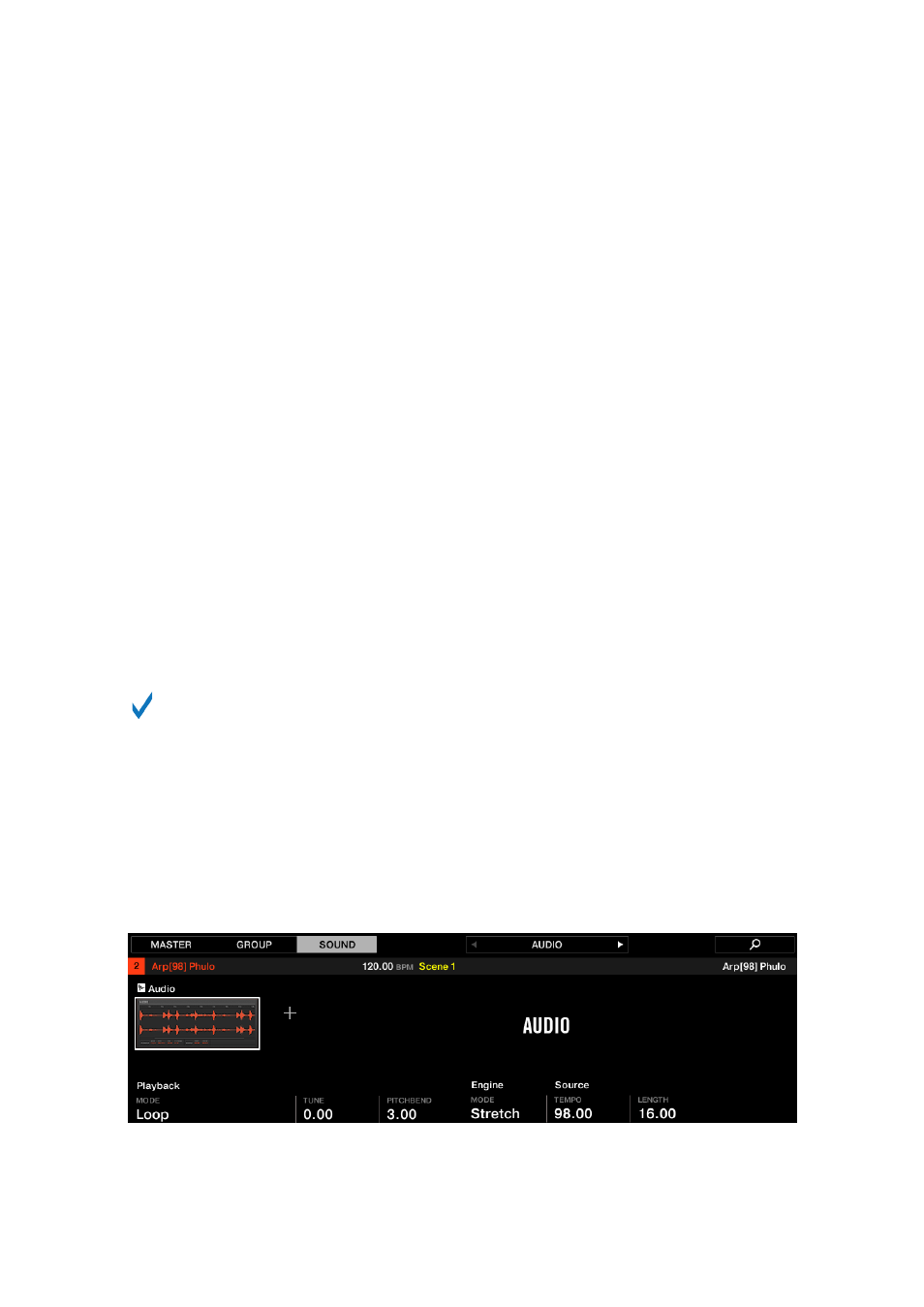Using the audio plug-in, Using the audio, Plug-in – Native Instruments MASCHINE+ Standalone Production and Performance Instrument User Manual
Page 96: Loading the audio plug-in

10.7. Using the Audio Plug-in
The Audio Plug-in can playback Samples (drums, percussion, basslines, guitar riffs, etc.) in sync
with the tempo of your Project. It has two modes:
Loop
mode and
Gate
mode.
•
Loop
mode is the default setting where the loaded loop will play continuously whenever there is
an active Pattern or Clip in the Group. You can see the waveform of the Sample in the Pattern
Editor to understand how it aligns with the Pattern.
•
Gate
mode is similar to the Loop mode where the loaded loop will play continuously. However,
the loop will only be audible in locations where you place notes in the Pattern. Furthermore,
when using
Stretch
mode the pitch of the loop will be transposed based on the pitch of the note
(e.g. note C3 will play the Sample at its original pitch, while C4 plays the Sample one octave
higher than normal).
The Audio plug-in specializes in keeping audio loops playing in-sync with your Project and has the
optional ability to do so without influencing the key of the loop. Furthermore, you can transpose
the loop while it plays so that it fits the key of your song.
You can quickly audition your Samples from within the Browser and then load them directly onto a
Sound. If you load a Sample containing the
Loops
tag onto an empty Sound the Audio module will
load automatically.
Once a loop has been loaded, it will appear as a waveform in the Pattern Editor, allowing you to
edit the Sample by adjusting the Patten Length and add MIDI events to regions of the loop for
selective playback and pitching. For more fine adjustments you can edit events in a close-up view
by toggling the close-up view in the Pattern Editor. In the Plug-in view, you can adjust the overall
tuning, the source tempo, and length of the Sample.
For more information on recording your own loops, see
Loading the Audio Plug-in
The Audio Plug-in can be loaded onto any Sound within a Group. As a MASCHINE Plug-in, it
supports all usual Plug-in workflows. Hence, to know how to load, remove, replace, insert, move,
copy/paste the Audio Plug-in, as well as how to adjust the Audio Plug-in parameters and load/save
default presets, refer to the section
Once an Audio Plug-in is loaded it becomes visible in both the displays.
Audio Plug-in
Here is an overview of the Audio Plug-in parameters:
WORKING WITH PLUG-INS
89
